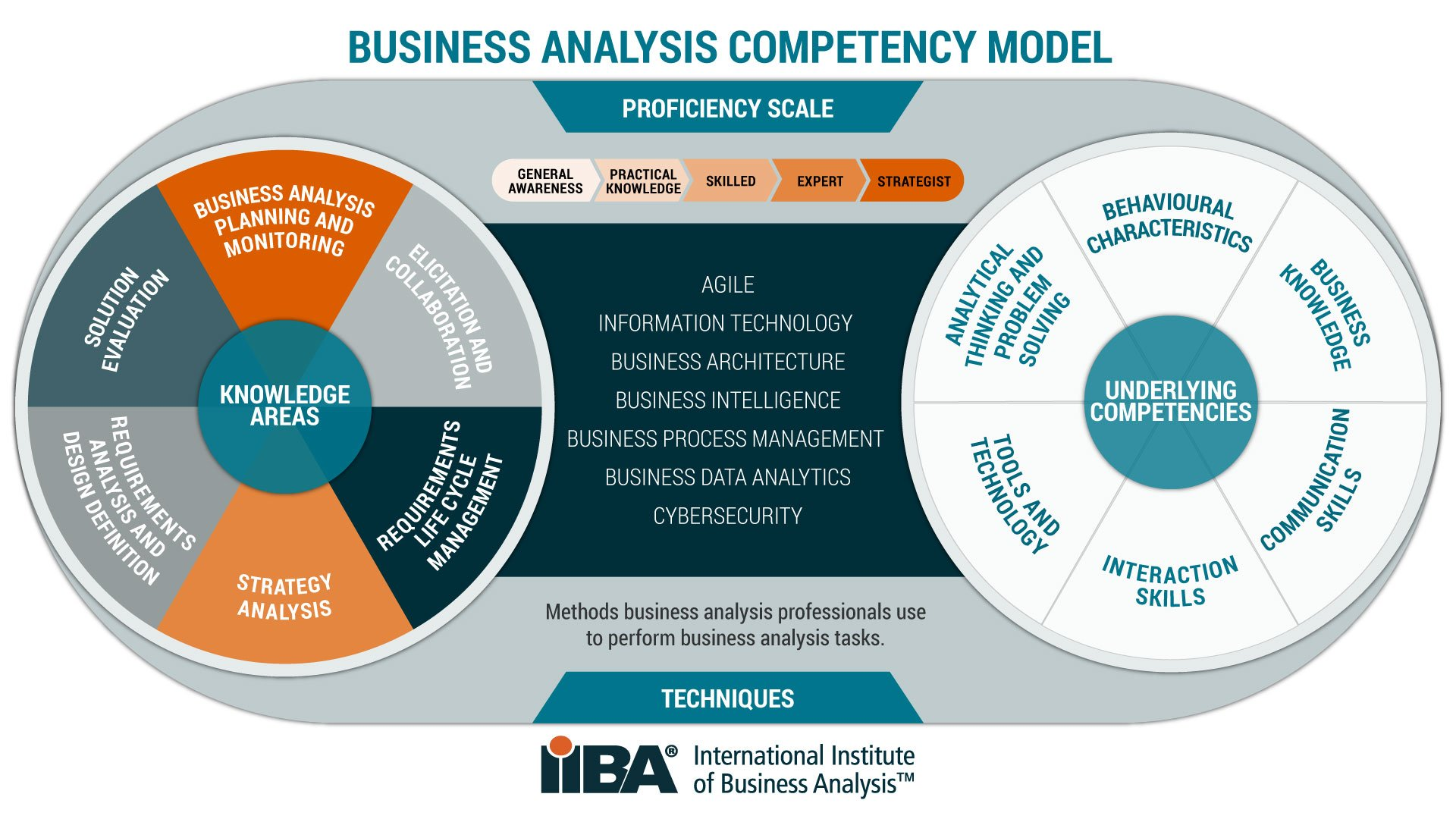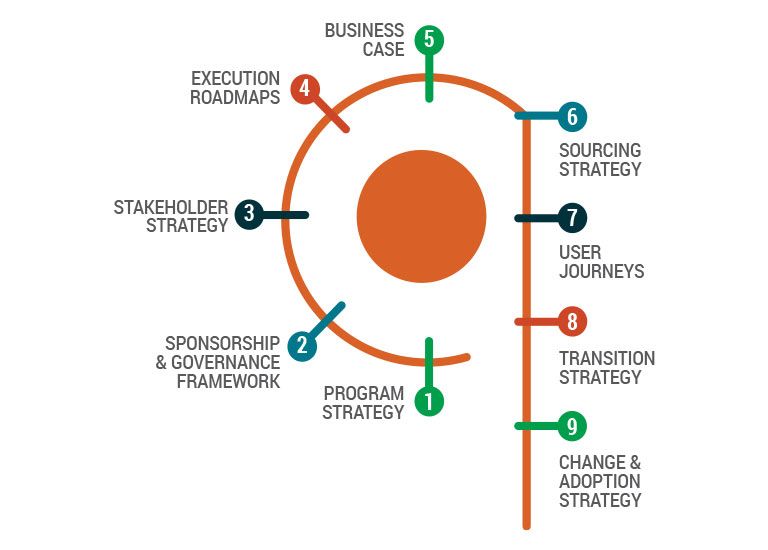BUSINESS ANALYSIS HELPS BUSINESSES DO BUSINESS BETTER
Source: Strategy to Execution Framework® published by International Institute of Business Analysis™ (IIBA®), Canada. Preview Edition © 2020 International Institute of Business Analysis. All rights reserved.
what is business analysis?
Business analysis is to interface with key stakeholders to understand a business's needs, structure, policies, and operations to develop solutions that enable the organization to achieve its goals and objectives.
Business analysis plays an essential role in every organization. The business analyst performs tasks, such as eliciting, analyzing, and documenting business requirements. He/she conducts gap analysis, develops business cases, identifies areas for process improvement and organizational change. Besides, the business analyst develops strategic plans and policies that drive an organization towards a better future.
An organization can leverage business analysis to achieve its strategic goals by identifying and implementing specific changes. The nature of change can be strategic or structural, sometimes involving changing various policies and processes within an organization to compete better in the market.
Organizations can improve their strategic and technical skills by understanding the current market scenario with the help of business analysis. It helps them identify what is their current position in the market compared to competitors.
Organizations can improve their strategic and technical skills by understanding the current market scenario with the help of business analysis. It helps them identify what is their current position in the market compared to competitors.
There are many facets to business analysis. Some examples include:
- performing feasibility studies,
- risk assessment and mitigation plan,
- identifying and defining new business opportunities, and
- writing a detailed business case.

The Business Analysis Competency Model® is an ongoing initiative of the International Institute of Business Analysis™ (IIBA®) since 2010. This comprehensive model is based on research in organizations of various sizes and industries around the globe.
TEN BUSINESS SKILLS ALL ANALYSTS MUST POSSESS
We have compiled a list of ten necessary skills that every business analyst should possess. We broke the ten skills up into two separate categories: Technical Skills and Personal Skills.
Technical skills include items such as but not limited to:
- technology,
- research,
- data review/statistical analysis,
- financial planning, and
- documentation/organization.
Personal skills include items such as but not limited to:
- problem-solving,
- decision making,
- managerial skills,
- communication skills, and
- negotiation.
Our comprehensive, vibrant learning training program will enable you to possess and master the above skills.


